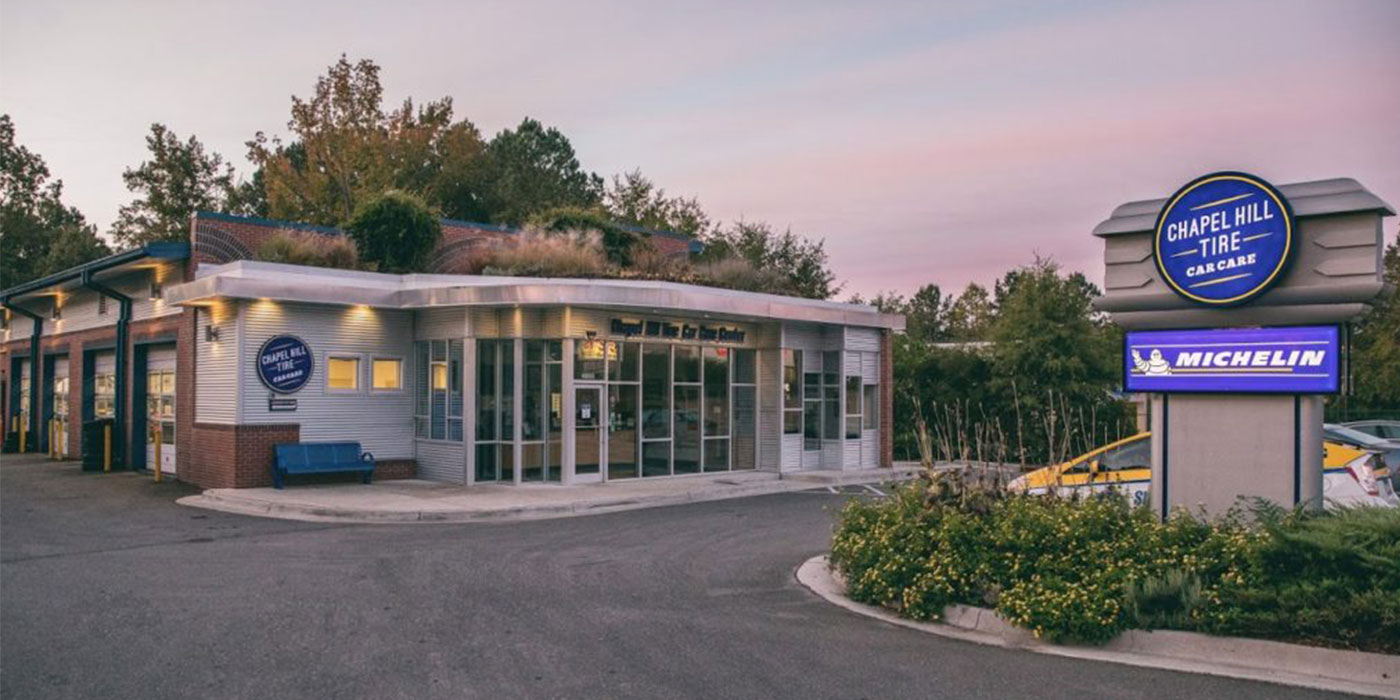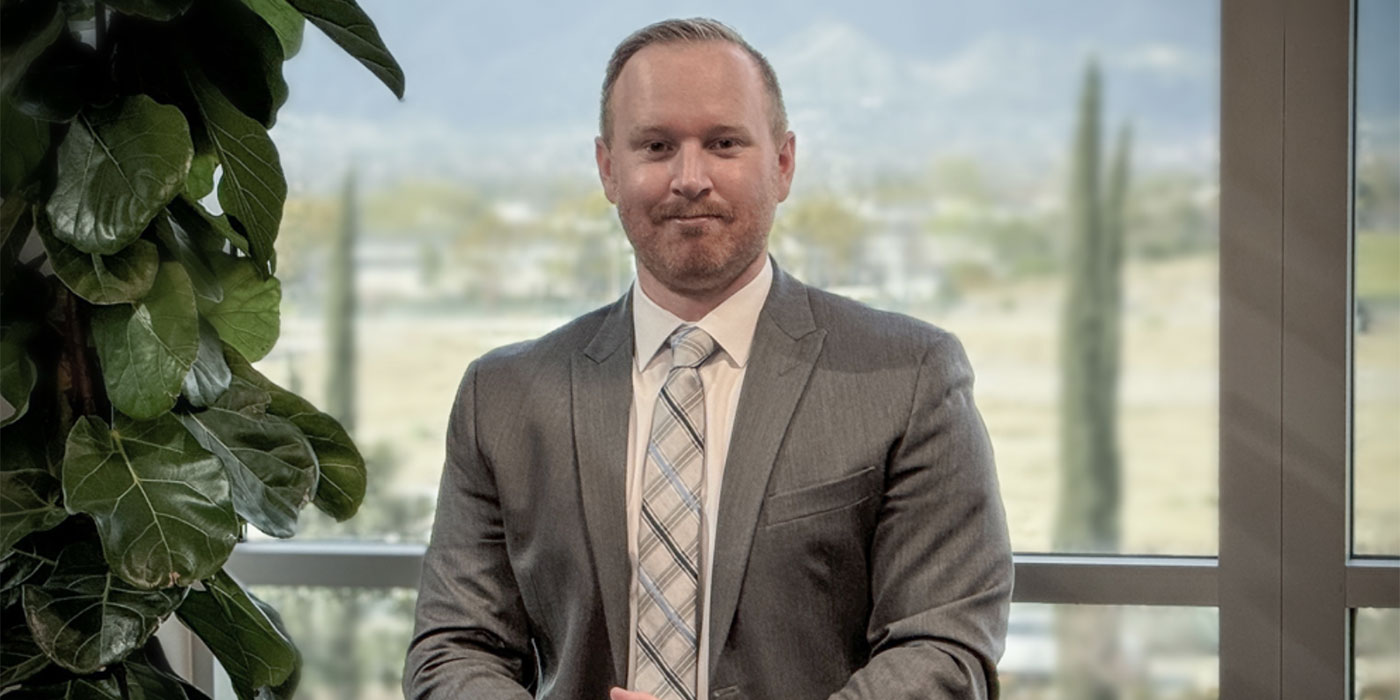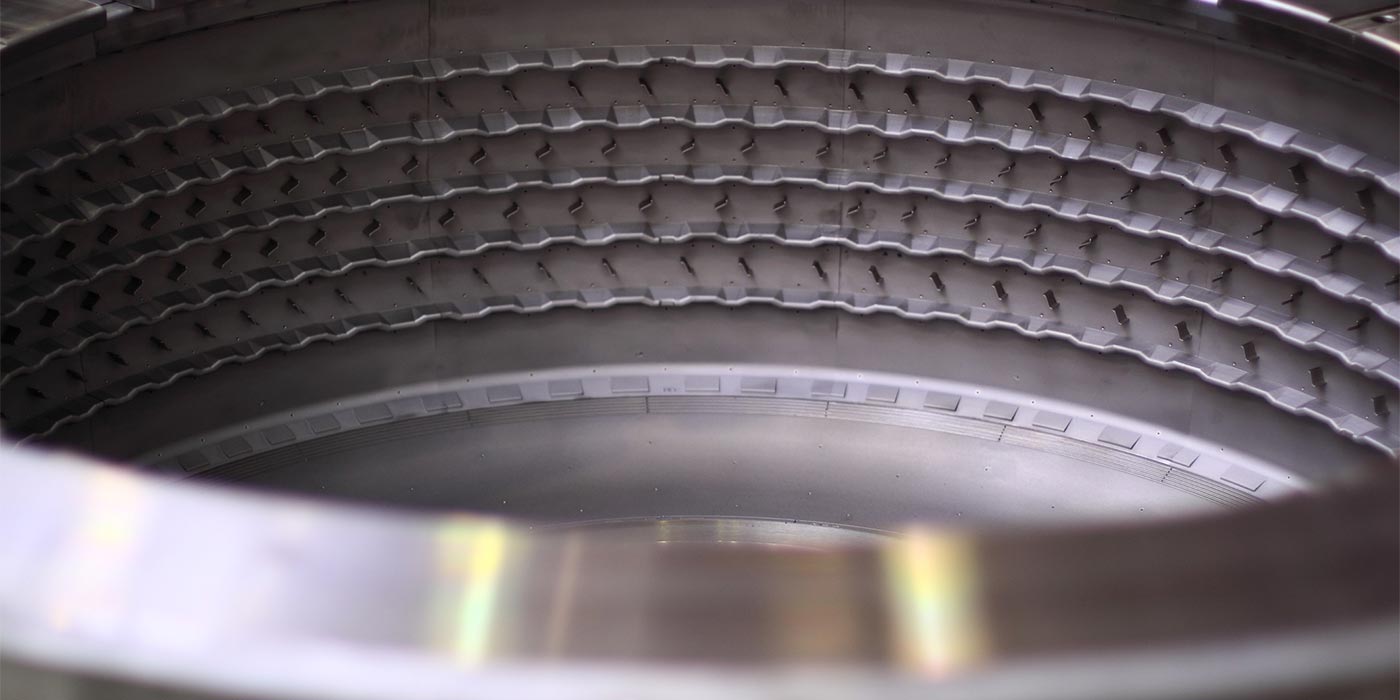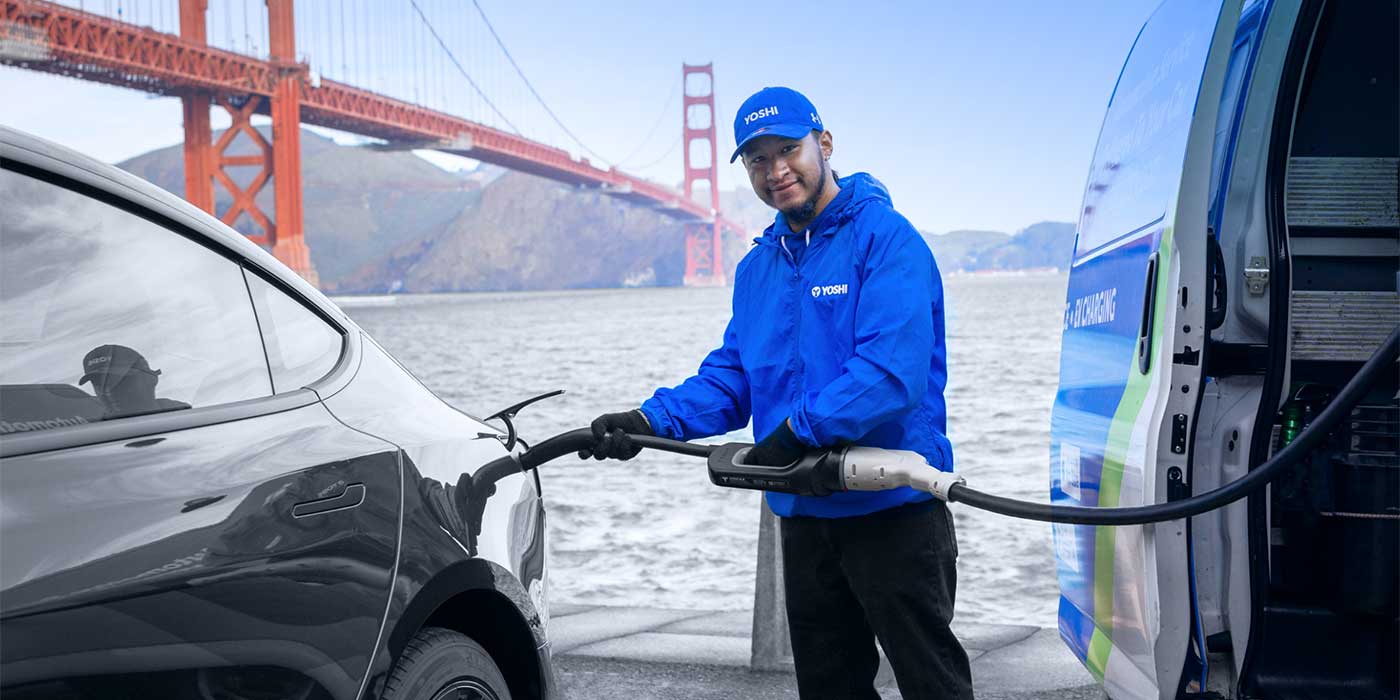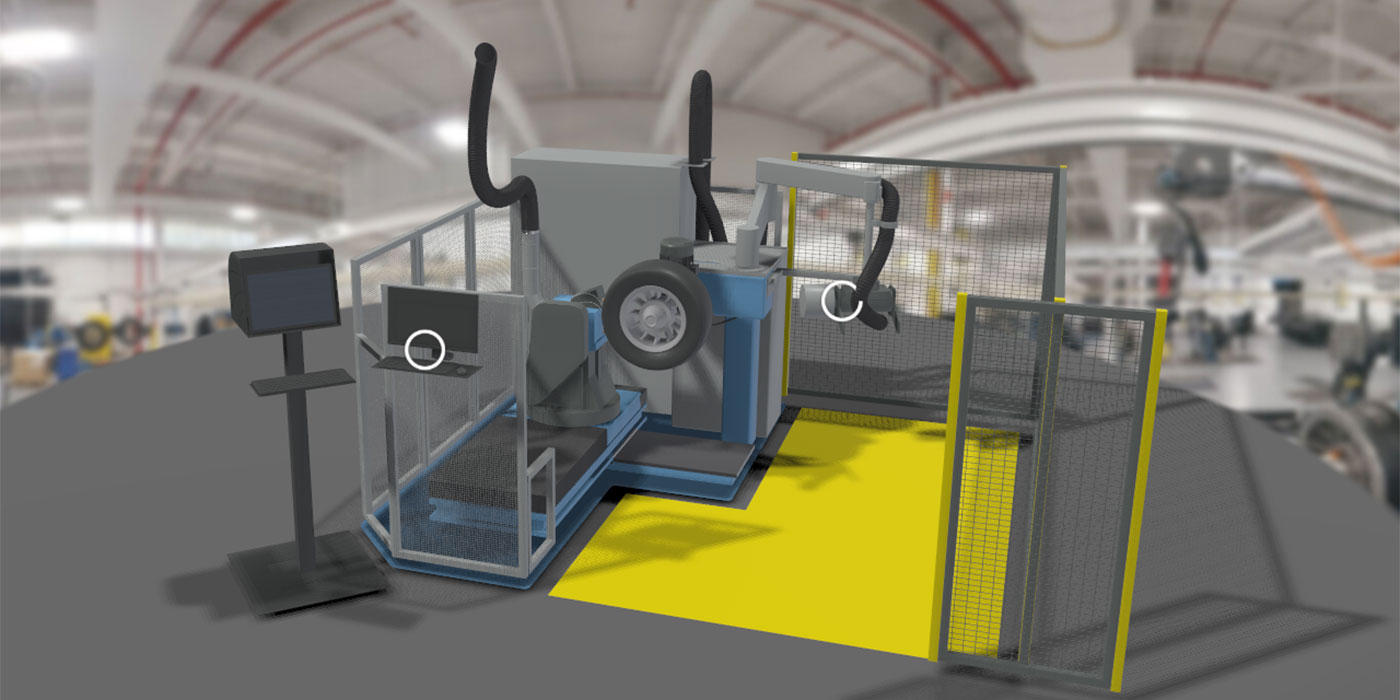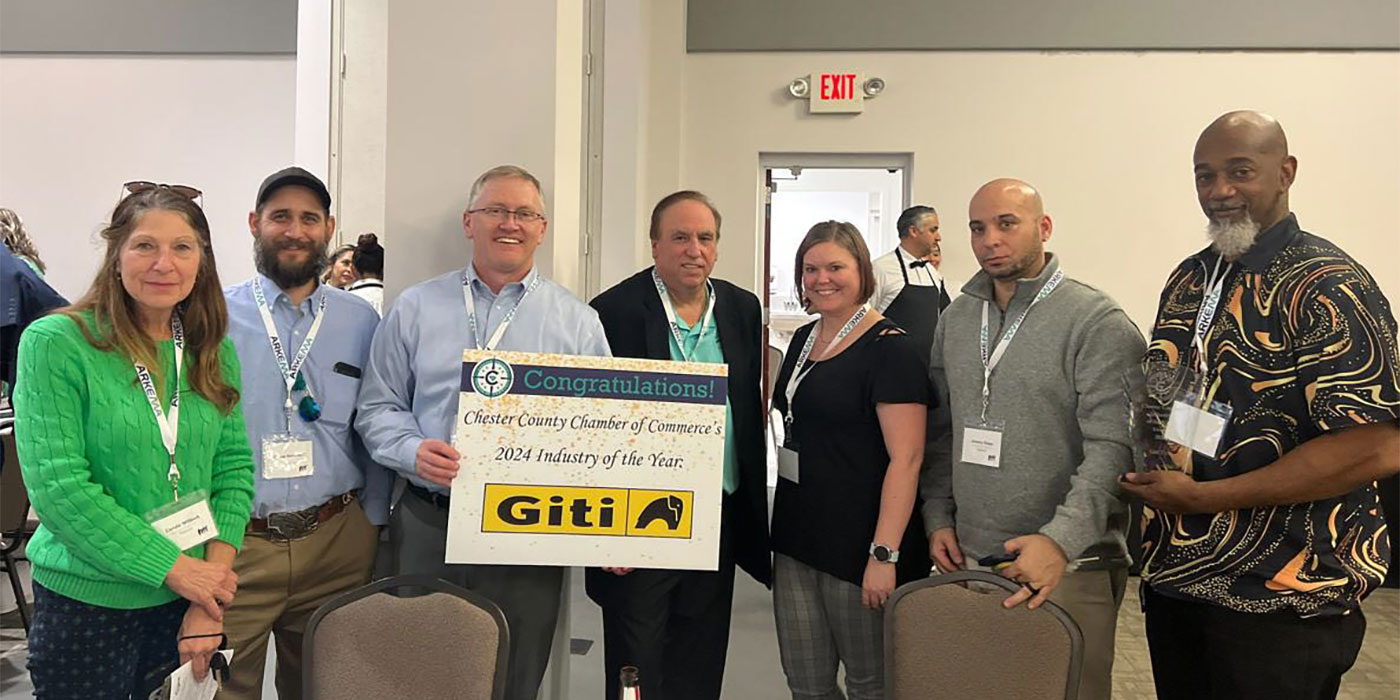If you were to look back on the rising presence of Chinese tires in recent times, you’d be mistaken for thinking manufacturers in the country view the world as their oyster and the 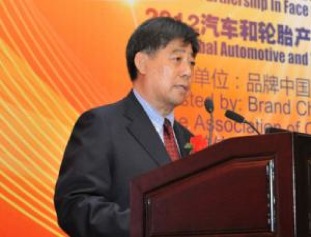 future as ‘all good.’
future as ‘all good.’
Yet tiremakers in China are not insulated from the economic troubles we’ve experienced since 2008. Last year, China’s economic growth slowed and imports are currently increasing at a greater rate than exports. On top of all this, China is now home to hundreds of tire manufacturers. And while the top 10 Chinese tiremakers together hold 30% of the domestic market, most companies are small and many have product mix and quality issues.
In light of these economic conditions and a crowded playing field, a number of larger Chinese firms realize they need to adapt in order to continue prospering. Specifically, they recognize the necessity of investing in quality.
One such manufacturer is the Triangle Group. In April, the company hosted a trade and government summit in Beijing that addressed various issues China’s tire industry faces and projects intended to ensure its ongoing viability.
The 2012 Global Automotive and Tire Industry Forum & Business Summit placed a particular focus on the importance of keeping pace with global developments while protecting the environment. “In the face of the global economic crisis’s severe challenges, all countries have made great efforts and tried every means to realize economic recovery,” stated Triangle chairman and president Ding Yu Hua during his opening address at the summit.
“At the same time, people are also deeply aware of their responsibility to protect the global environment – the common homeland of mankind – which, day by day, is becoming an increasingly urgent and important issue.”
At present, one in every four tires produced worldwide is manufactured in China, and 46% of the tires leaving factories there are destined for export. Gao Yunhu, associate director of the materials section at China’s Ministry of Industry and Information Technology, reported to the summit that in 2011 China produced a total of 830 million tires, a year-on-year increase of 8.5%.
Of this, 456 million were passenger car tires, 2.9% more than in 2010. Radial tire production hit 390 million units, a growth of 5.6%. Total revenues for the industry last year amounted to nearly RMB 400 billion, Gao shared, while profits amounted to RMB 191 billion. The tire industry employed some 325,000 workers, or 6% of China’s petrochemical sector. However, as already mentioned, a large proportion of tire companies in China are smaller operations.
“China’s tire industry is rapidly developing, but there are some issues,” Gao added. “First, there is a lack of capacity for independent innovation. Apart from a small number of enterprises, the vast majority of are relatively small local tire businesses that lack research and development capacity. This means that few innovative products are independently developed, product mix is poor, relatively few high-end products are made and product homogeneity is a serious problem.”
Other issues Gao outlined are overcapacity and an excessive dependence on overseas markets for raw materials, especially natural rubber, 75% of which is imported. Added to these and global economic problems is a situation many in China view as a deliberate effort to hold its tire industry back. Several summit speakers didn’t mince words – U.S. tariffs and European policy regarding Chinese tires, opined Wang Xuekun, associate director of the Policy Research Office of the State within China’s Ministry of Commerce, are “unjust, unreasonable, discriminatory, and go against World Trade Organization rules.”
He added that U.S. and European moves to thwart Chinese companies can be seen in the figures: Imports from China into the U.S. grew 9.4% in 2011, 1% lower than overall import figures, while Chinese imports into the European Union grew 3%, a decline of 1.25%.Ai Feng, chairman of the Brand China Industry Union, went even further. “What is the reason for the world financial crisis?” he asked summit delegates. “Some Americans blame China and say that because the dollar-RMB exchange rate is too low, cheap Chinese goods have flooded into America and caused the U.S. economy to collapse. But are cheap Chinese products to blame for the collapse of the U.S. economy, which has the world’s most advanced technology? That is fantasy. As a Chinese proverb says, if you don’t sleep well, you don’t have a good pillow.”
Instead, Ai attributed U.S. economic woes to over consumption, or spending more than the country earns, and to clinging to a Cold War mentality that prevents it selling its high-tech products to China. “They hold out a golden bowl to borrow money,” he observed, before adding that he views Europe’s debt crisis as being similar to America’s.
Ai Feng urged developed economies such as the U.S. and Europe to cooperate and transform. “The global economic structure is already undergoing profound changes. The rise of Asian economies and the BRIC countries has become a major trend, and irreversible. The Cold War mindset is out of date and trade protection not very clever. We need to be sober-minded and understand that cooperation in transforming the world economy and taking advantage of economic globalization is the best solution to achieve a win-win situation. Domestic economies, whether in developed countries or developing countries such as China, need to work to overcome the drawbacks in the current economic model, which is in transition.”
State Support
Whether North Americans and Europeans subscribe to this point of view is outside the scope of this article, yet regardless of opinion, the fact remains that China intends to support its tire industry during this time of “transition”.
Gao Yunhu believes the period between 2011 and 2015, the timeframe covered by China’s 12th five-year plan/guideline, is a key period for the country’s tire industry to grow stronger. “We need to have scientific development, accurately grasp the world economic outlook and make timely adjustments to China’s tire industry policy in order to upgrade the sector.”
Priorities, said Gao, are to build up Chinese brands and to develop variety and quality in all segments, including ‘green’ tires, high performance tires, aircraft tires and high-performance ‘green’ tire additives. It is also important for China to implement standards for the development of greener, safer tires, he commented. In short, China intends to support its tire industry’s shift from expanding in scale to expanding in quality.This support will take various forms. In line with the current five-year guideline, the Bank of China, one of four state-owned commercial banks in the country, will provide finance to tire companies wishing to upgrade.
“National industrial policy has a decisive role in the development of the industry,” commented Tang Mao Weng, chief product manager with the bank. “The Bank of China will pay close attention to changes in the national industrial policy and more closely examine changes and developments in the foreign and domestic automotive and tire industries in order to provide financial support for Chinese companies for projects, supply chain and IPOs, so they can expand their markets and achieve sustained, healthy development.”
Although aiding the domestic industry through tariffs is frowned upon, giving local manufacturers a competitive edge on the world stage through financial support is another matter entirely. “We will help Chinese tiremakers go global,” Tang declared. “The Bank of China will give more loans for technology and research and development projects so that they can adjust their industrial structure and develop advanced and green products. We will give low-cost capital to help them develop these.”
National Engineering Laboratory
Along with financing through state-owned banks, China is investing in developing the qualitative improvement of its tire industry through other, more direct avenues. The country’s National Bureau of Statistics reports that last year China spent RMB 861 billion on research and development, a figure equal to 1.83% of its gross domestic product.
One area of investment was work towards establishing around 100 ‘National Engineering Laboratories’ for facilitating innovation in a range of industries. The interests of China’s tire industry will be served by a dedicated laboratory, and in August 2011 China’s government appointed the Triangle Group the host company for a jointly-funded facility, the National Engineering Laboratory for Radial Tire Design and Manufacturing Technologies (NEL).
During the summit, NEL associate director Harry Gong explained the laboratory’s purpose in greater detail.“We are very proud that our lab, the National Engineering Laboratory for Radial Tire Design and Manufacturing Technologies, is the only one for the tire industry in this nation,” Gong told summit delegates. “Triangle was chosen by the national government last year to build this laboratory. And the lab has been charged with the task of technology innovation for the tire industry in China, and it will formulate technical requirements for tire manufacturing and products in China as well.”
Gong stressed that the NEL is an “open platform” for innovation within the tire and rubber sector, and as such is available for use by all Chinese tiremakers. He added that some of the test equipment installed in the NEL is “not found anywhere else” in the world. “We are going to have an advanced lab with advanced test equipment that is going to meet the long-term needs for innovation in tire technology and product innovation,” Gong continued.
“The needs here are not just Triangle’s needs but the national industrial needs, and we are going to have world-class research teams working on projects that will advance the state of the art in tire manufacturing, compounding (see the SEIR article in this month’s raw materials section for further details), design and tire performance – all tire-related technologies.”
The NEL associate director then discussed the ongoing research projects already being conducted at the center: “One of them is energy saving mixing processes – we have been working on that and are continuing to improve the energy efficiency of the mixing process. Secondly, we are continuously working on green compounding technology for reducing rolling resistance and improving the fuel efficiency of the tire. Thirdly, we are working out a new manufacturing process for inner liner materials, which will improve air permeability and prolong tire life,” Gong said.
“We are also working on the simulation of manufacturing processes so that we can optimize these processes and improve tire quality,” he continued. “Next, we are working on computer-aided tire design and development technology with an emphasis on performance prediction and optimization, so that we can reduce the product development cycle and bring new products into the market faster and better.”
The upshot of all this research, Gong stated, is that Triangle and other Chinese tiremakers will be in a better position to manufacture “high performance, high quality tire products,” while at the same time placing a greater emphasis on the environment. Summing up Triangle’s position within the project, the associate director declared that the choice of this particular tiremaker to host the NEL serves as evidence that Triangle is the “recognized leader of the Chinese tire industry.”
Other Triangle ProjectsWith ambitions befitting an industry leader, Triangle shared with summit delegates its aim of more than ‘just’ passing upcoming European legislation. The tiremaker intends to have its high performance radials reach the 2016 European standards, with a B or higher label rating for fuel consumption and a B rating or higher for wet braking, accompanied by an 8% reduction in braking distance.
How does Triangle plan to achieve such an impressive result? The answer to this is that it won’t be working on it alone. Along with explaining its role with the NEL, Triangle shared that it is involved in several other quality-focused projects. Details of these were outlined by Harry Gong.
“We have a cooperative agreement with the University of Akron in the U.S. to perform polymer science research and to train our engineers,” he shared, adding that the facility Triangle established in Akron last year also provides technical service to its customers and research into tire mechanics and other areas, on top of its polymer research. “Also, we have a partnership with the Beijing University of Chemical Technology and the Beijing Rubber Industry Research and Design Institute for building the National Engineering Lab. And we have a cooperative agreement with Tianjin University for building a tire proving ground and to perform tire performance evaluation research.”
Plans are in place, Gong added, to expand the proving ground in order to enable full radial tire testing. “We also have a cooperative agreement with the Harbin University of Technology for research into aircraft tire development,” he continued. “And, last but not least, we are working with Sinopec on rubber polymer product research and marketing.” During the summit, representatives from China’s government and state agencies talked about the need for manufacturers to improve quality and shared their plans for supporting the country’s tire industry. At the same time, China bears a responsibility to ensure domestic tiremakers adhere to particular quality and environmental standards.
For this reason, stated chairman and president Ding Yu Hua, the Triangle Group intends to initiate a project it calls “the industrialization of the green tire.” Amongst other things, this involves Triangle working with relevant agencies and institutes in the drafting of new standards for tire performance, quality inspection and environmental impact.
The company is in a strong position to be listened to, given that it is a founding partner of the Chinese Tire Industry Technology Innovation Strategic Alliance and a member of the China Rubber Industry Association Tire Division and the National Tire & Rim Standardization Committee.At the same time as pushing for legislative changes, Triangle will, said Ding, “commit ourselves to building a new economic model denoted by green products, green manufacturing, green supply chain and green consumption.” He added that by adhering to the standards and laws in place in developed markets, the company will “establish an internal quality standard to ensure the green products of Triangle reach an international standard.“
In the upcoming days, Triangle will continue to push forward the ‘going global’ strategy in terms of technology, manufacturing, marketing and service, and strive to build a talent pool with international vision and a better ability to learn and implement,” declared Ding during his address. “The building of a talent pool will always be an important task for Triangle. We sincerely welcome more friends to participate in our course.” (Tyres & Accessories)

